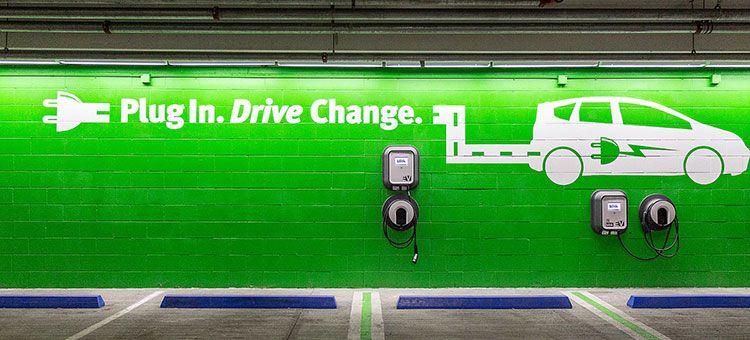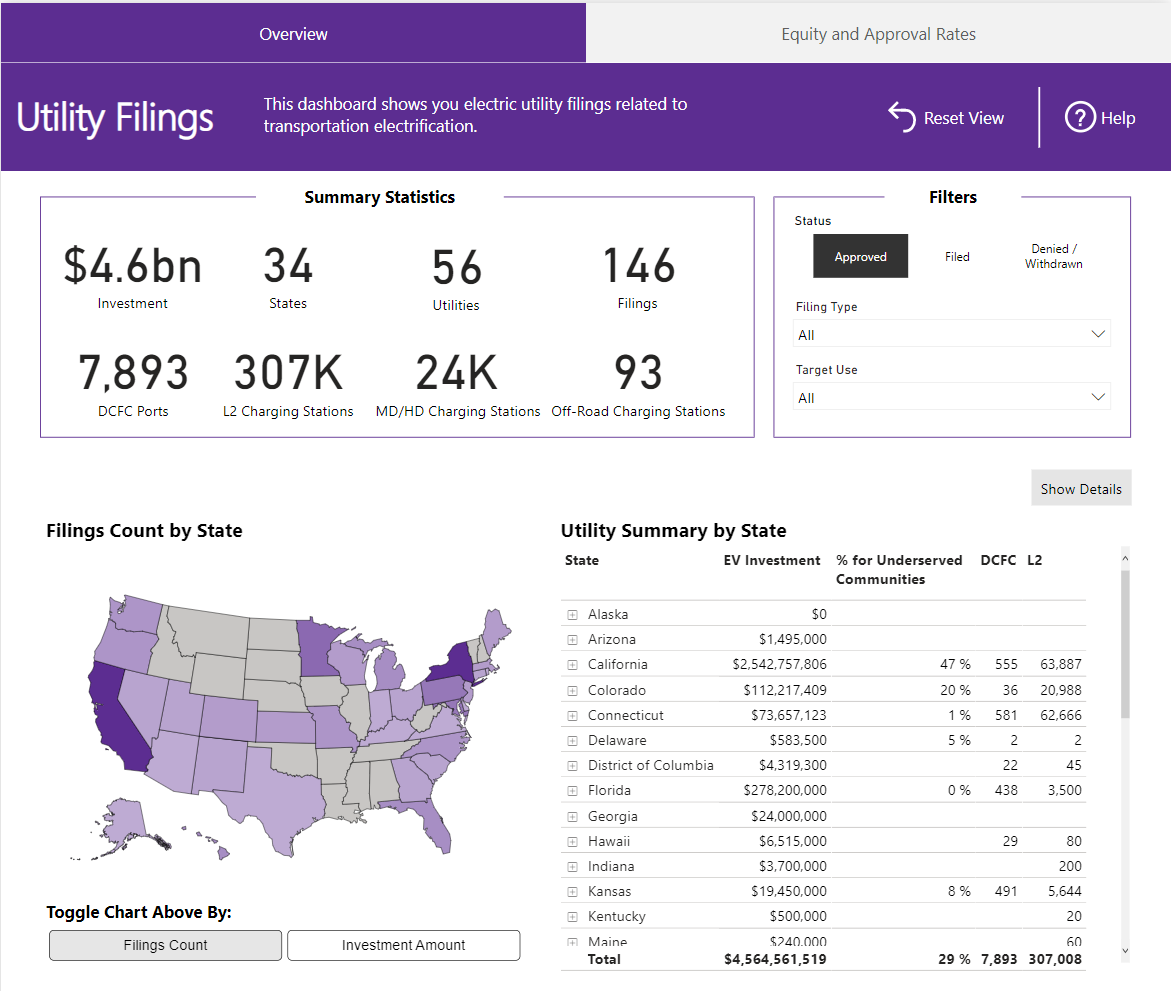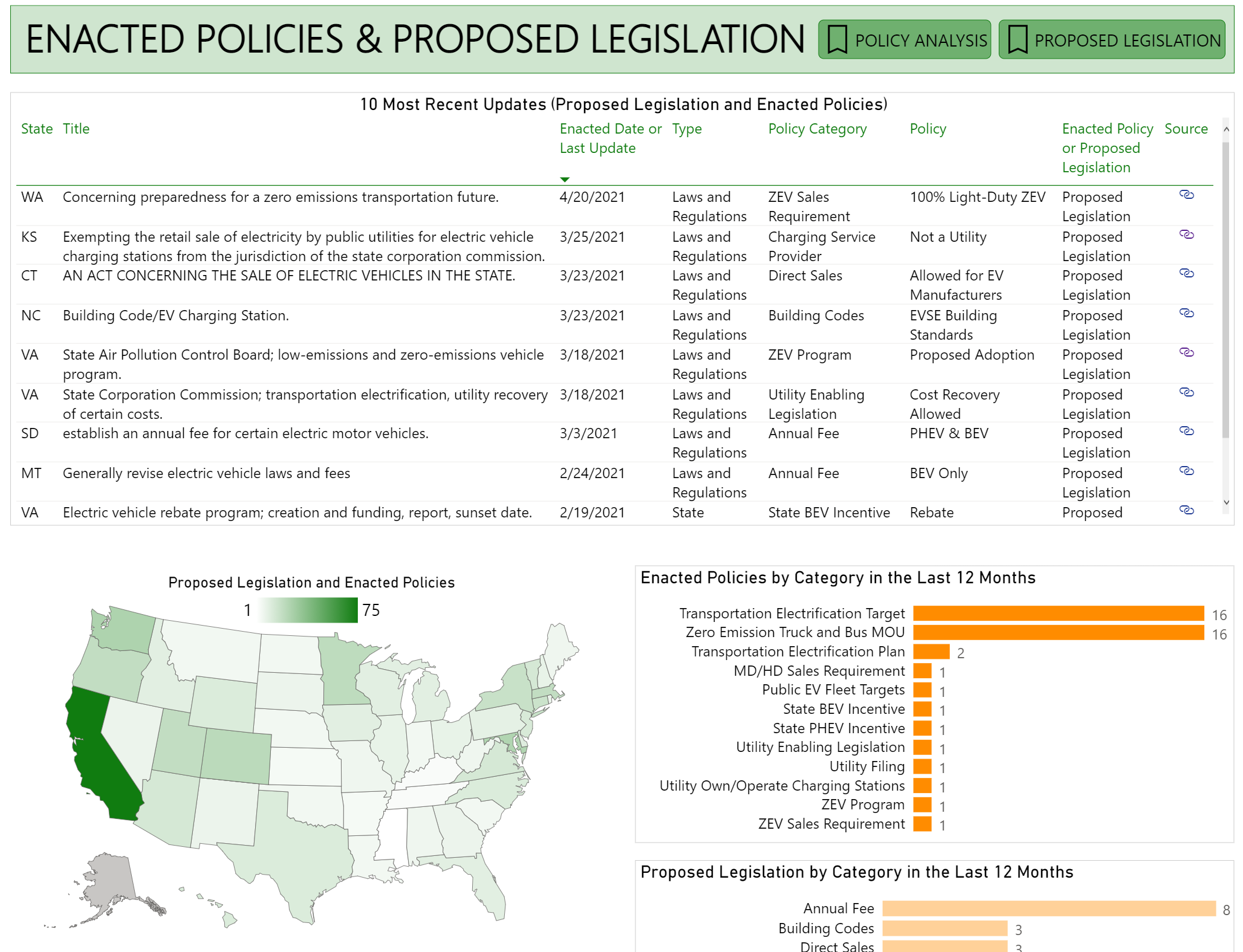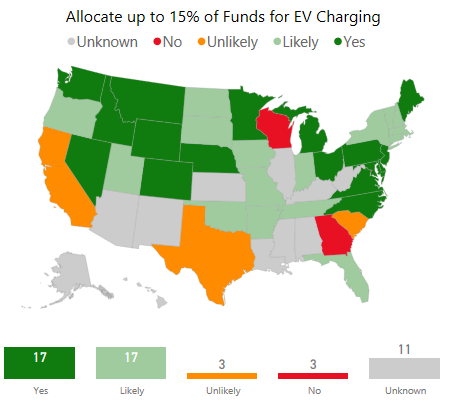Market forecasters are predicting substantial growth in number of EVs on roads globally by 2040. Bloomberg New Energy Finance estimates that EVs will account for more than 50 percent of global sales by 2040. In the United States, the U.S. Energy Information Administration predicts that EVs will make up more than eight percent of all passenger vehicle sales by 2025 as federal and state level emissions regulations tighten.
A significant push is required if EV sales, which reached only around two percent of total U.S. passenger vehicle sales in 2018, are to rise to meet these projections. Persistent gaps in consumer awareness present a significant challenge for automakers and other entities seeking to accelerate the EV market. Even in California, a relative EV hotbed in the United States, consumer awareness of increasing EV availability and range did not shift significantly between 2014 and 2017 according to researchers at the University of California at Davis.
Despite this lack of awareness, recent data suggest that the public has strong expectations for the EV market. Nationwide, four in 10 Americans believe the majority of vehicles will be electric by 2029 according to a survey conducted by AAA. This represents a significant acceleration from EIA’s prediction of eight percent of sales in 2025 and further investment in education and awareness will be required to ensure that demand for EVs can meet the public’s predictions.
Electric utilities offer one potential source of increased investment via their existing education and outreach efforts as well as newly proposed utility filings that focus on transportation electrification. To date, electric utilities across the United States have only invested $20 million in education and outreach programs. This is less than two percent of the total $1.18 billion in approved transportation electrification investment overall. Additionally, education and outreach components are only included in 20 out of the 55 approved programs tracked by the Utility Filing Dashboard. There are four utility programs that include more than just an EV rate filed so far in 2019 and all contain funding for education. These education components are worth a combined $6.4 million, but this only represents six percent of the total funding for these programs. Overall educational investment is spread across 20 utilities in 11 states. Table 1 outlines the largest approved educational investments from electric utilities so far.
Highest Approved Utility Investments in Education
|
Utility |
State |
Investment |
Date Approved |
|
Southern California Edison |
CA |
$3,100,000 |
1/25/2016 |
|
Baltimore Gas and Electric Company |
MD |
$2,406,510 |
1/14/2019 |
|
Puget Sound Energy |
WA |
$1,617,800 |
12/13/2018 |
|
DTE Energy Company |
MI |
$1,600,000 |
5/2/2019 |
|
Potomac Electric Power Company |
MD |
$1,534,153 |
1/14/2019 |
|
National Grid |
MA |
$1,209,117 |
9/10/2018 |
|
Pacific Power |
OR |
$1,105,000 |
2/27/2018 |
|
San Diego Gas & Electric |
CA |
$1,040,000 |
1/11/2018 |
|
Consumers Energy |
MI |
$1,000,000 |
1/9/2019 |
|
NV Energy |
NV |
$706,400 |
6/29/2018 |
This table outlines the major utility investments in educational programs. Southern California Edison and Baltimore Gas and Electric lead the field with most other educational investment falling in states with strong EV markets.
Source: Utility Filings Dashboard
Utilities are not alone in the effort to raise EV awareness and often depend on supportive state regulations to increase investment. Education and awareness are key components of New York’s comprehensive Charge NY initiative seeking to accelerate the EV market across the state and combine public funding with utility programs and private investments. In California, policymakers are mobilizing funding from large settlements with Volkswagen and NRG Energy to invest in awareness campaigns to support public and utility investment in charging infrastructure.
Across the country, 12 states including both California and New York have enacted legislation or regulation allowing utilities to own and operate charging stations. Colorado is the most recent entry into this group and has emerged in 2019 as a leader in transportation electrification policy. While the state has no approved filings from electric utilities so far, a suite of policies enacted recently expands state support for vehicles and charging infrastructure while directing utilities throughout the state to step up transportation electrification investment.
In addition to legislative support, utilities can lean on third-party organizations to amplify awareness. Forth, a Portland-based NGO focused on EV adoption, is working directly with Portland General Electric to lead the awareness efforts of the utility’s approved transportation electrification programs. This involves direct outreach to key customers like ride-hail drivers and the general public on the benefits of EVs and the availability of programs to help drivers save money. Forth and the other partners of the EV Shared Mobility project, a multi-city effort to encourage the electrification of for-hire vehicle services, are all incorporating education and outreach into their program designs and working directly with electric utilities to ensure that investment in charging infrastructure and other resources leads to increased EV uptake among shared mobility service providers.
Projects like EV Shared Mobility seek to highlight the importance of outreach and distill good practices that can be adapted to amplify consumer knowledge of EVs throughout the United States. EV market forecasts and growth projections rely on the assumption that the public will be aware of and attracted to the benefits of EVs. With more than $86 million in pending investment in education efforts, electric utilities and their partners are in a position to increase awareness around and investment in the EV market.
Learn More









